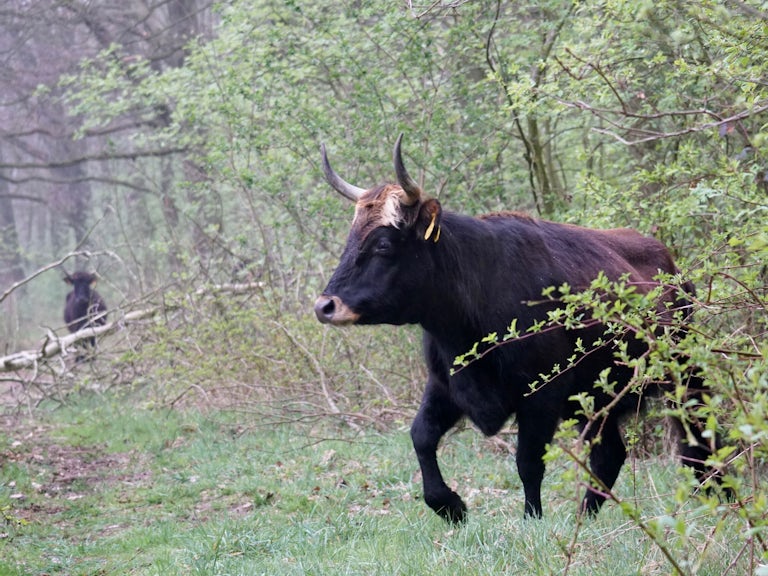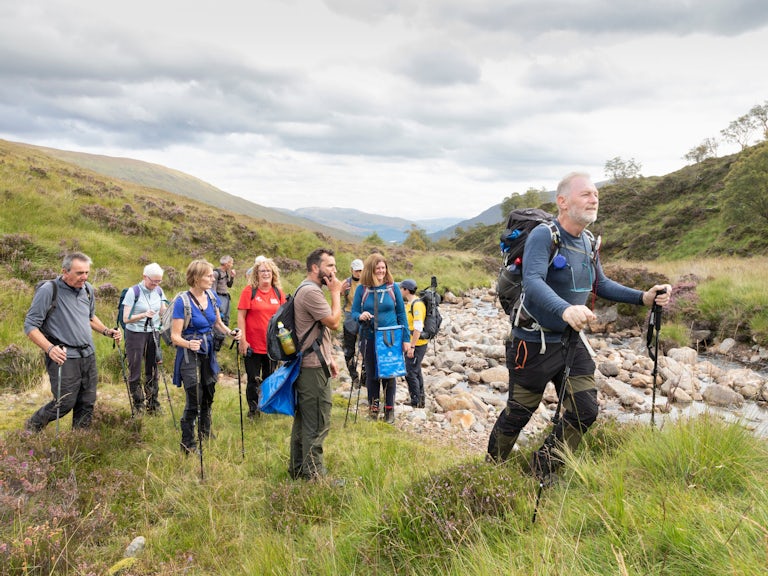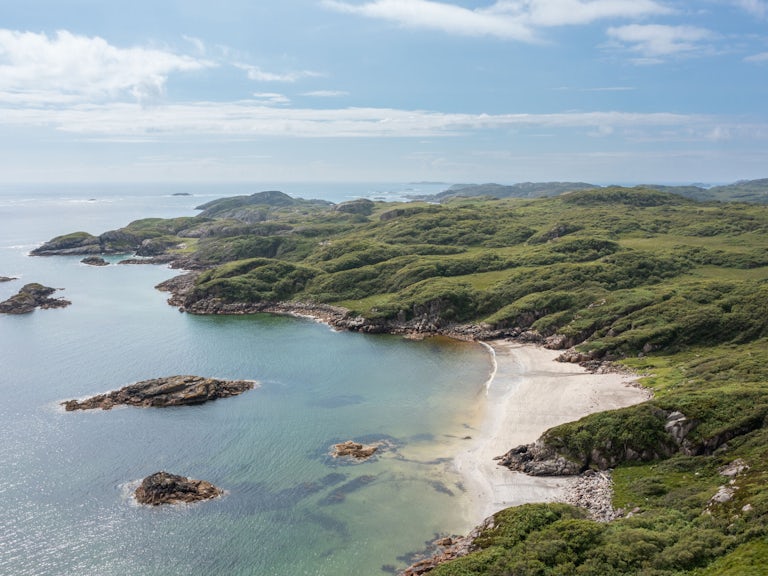The Langholm Moor Community Buyout: tackling climate change, ecological restoration and community regeneration
In the South of Scotland the community of Langholm is preparing for one of the most ambitious plans of a generation.
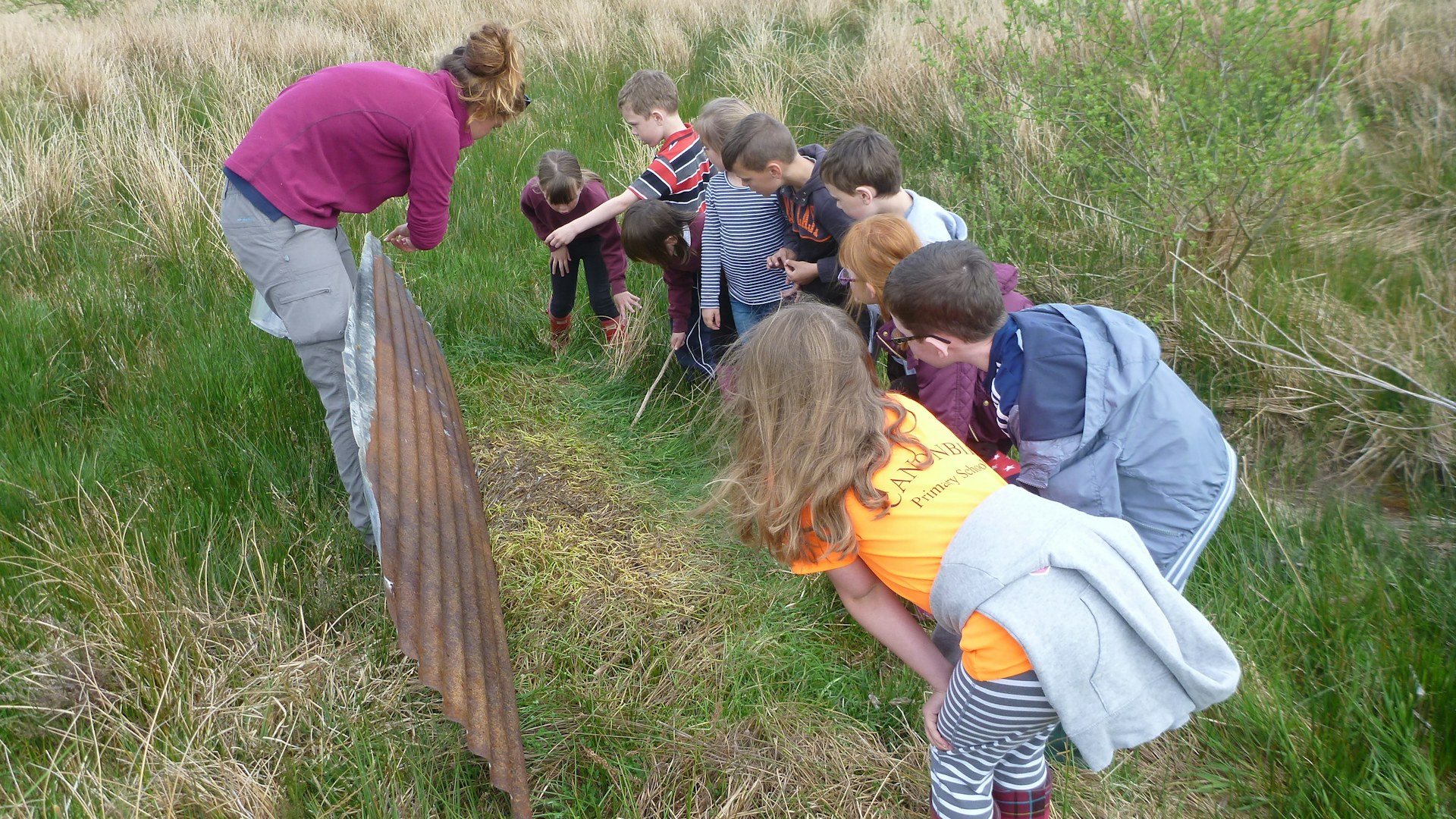
Published 07/05/2020
Kevin Cumming, Project Manager at Wild Eskdale reveals bold plans for Langholm Moor — a unique opportunity for a community buyout to see this land taken into the care and ownership of the local population.Here, Kevin talks about Langholm Initiative’s vision of a big landscape-scale project pushing the boundaries of community regeneration and ecological restoration and how you can be part of its success. Rewilding Britain is really excited to lend our support to this pioneering community-led initiative and look forward to seeing the benefits it brings for people, nature and climate. We urge you to support it too.
Imagine a place where hen harriers roam above the dramatic hills of a former grouse moor, sky dancing alongside the unmistakable call of the curlew. Flowing through this moor might be a river with a hidden world beneath its surface, home to playful otters and bobbing dippers. Native woodlands are thriving, creating a mosaic of wonderful habitats.
Now, consider the benefits if such a place were protected and owned by the people who live and work there. No need to stretch your imagination too far because Langholm Moor in the South of Scotland is such a place. A unique opportunity has arisen for this precious land to be taken into the care and ownership of the local population through a community buyout.
Make no mistake, this is a big landscape scale project pushing the boundaries of community regeneration and ecological restoration. So here it is, my take on one of the most important community projects in the UK.
My name is Kevin Cumming. I work for a charity called the Langholm Initiative (LI Website) based in the town of Langholm in Dumfries and Galloway in Scotland. I hold a BA (hons) in Business Administration and an MSc in Conservation and Management of Protected Areas. Currently, I manage the LI’s Wild Eskdale project which aims to provide outdoor education for the local community whilst promoting eco-tourism in the area.
The Langholm Moor community buyout
The Sky Dancers have returned, the winter’s rain has eased and in the South of Scotland the community of Langholm are preparing for one of the most ambitious plans of a generation.
For the past eight months I’ve been leading a local working group to investigate the potential for community ownership of nearly 10,500 acres (about 5,600 football pitches) of land close to the town for positive climate action, community regeneration, ecological restoration and wildlife conservation.
During this eight-month period unprecedented events occurred in my own life and around the world. Personally, my first child Freya was born. However, in her first few months of life, we have seen the devastation caused by the Australian wildfires and, of course, the global impact of Covid-19. That is why this community buyout at Langholm is important in these difficult times. It’s a project of vision and hope when we need it the most, and perhaps above all, it is a project for our future.
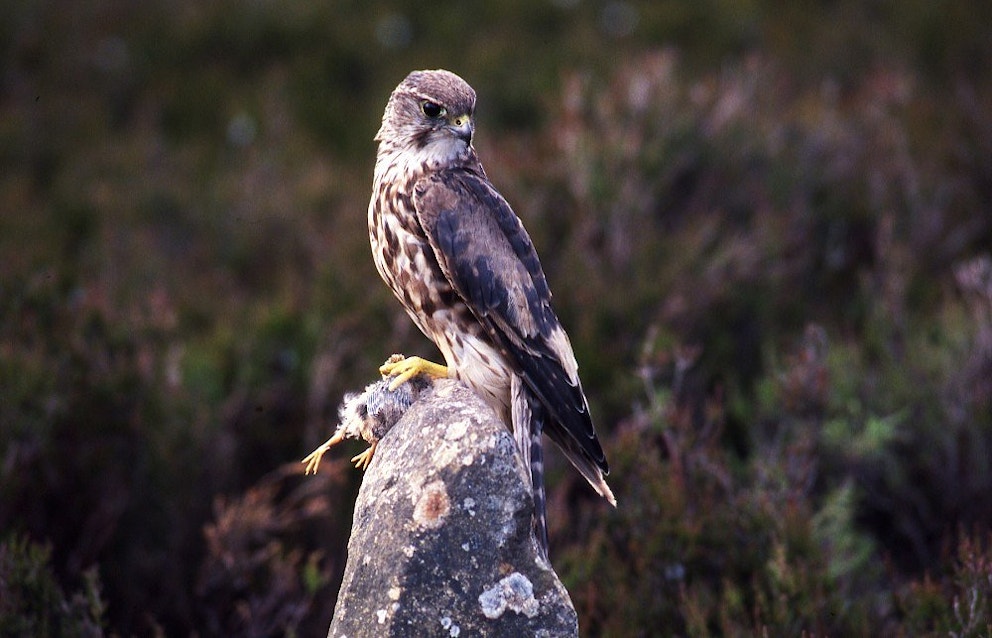
The robust plans put together by the community of Langholm place the environment and climate action at the heart of their decisions. Today, we launch our Langholm Moor Crowdfunder and with your help we will be able to make this vision a reality. The significance of this project cannot be overstated. It addresses so many of the questions we face not only here in the UK but around the world. The climate emergency is the biggest long-term threat that humanity faces.
Tackling this threat is going to take landscape scale change to reverse the decades of mistreatment of our natural world. By taking Langholm Moor under local community ownership, we can demonstrate how individuals united together for a common purpose can perform something truly amazing. We’re delighted to say that the John Muir Trust have demonstrated their faith in the project by announcing £100,000 of kick-starting funding towards the purchase.
Why Langholm?
Langholm was once a booming centre for the textile industry. Most local people would finish school and instantly find local employment in the mills. Speak to people here and they will tell you of the days when you could walk out of a job in the morning and walk into another by the afternoon. Sadly, these days have gone and over the last 20 years there has been a rapid decline in the industry. Just three weeks ago the last mill in Langholm announced its likely closure. Langholm now faces the same problems as many other rural areas in Scotland; loss of industry, youth migration and an aging population.
Something has to be done to change the fortunes of this once thriving community.
Why this land and why now?
Langholm Moor has huge cultural and natural heritage. People here are immensely passionate about the land they believe to be theirs and have marked the boundaries of the common land for over 250 years. This tradition still goes on today with a spectacular annual event, the Langholm Common Riding. The national and international importance of the natural heritage on this land is recognised by large parts of it being designated as a Site of Special Scientific Interest and a Special Protection Area (for Hen Harriers).
It has also been the site of two scientific studies regarding land management for the purpose of driven grouse shooting. The latest of these studies, the Langholm Moor Demonstration Project (LMDP), produced its final report last year (LMDP Final Report). The key finding was clear that driven grouse shooting was no longer economically sustainable on Langholm Moor. After the conclusion of this study the current landowner announced their decision to sell the land and hoped to do so quite quickly. If the people of Langholm were to have a say in how their moor would be managed they would have to act promptly. The clock started ticking and the question that faced us was “what could you do with a former grouse moor?”.
What will the community do with the land?
The project we have developed over the past eight months in close consultation with the community covers a wide range of subjects. Broadly speaking, it is a project to improve our future both environmentally and economically. The Langholm Initiative is proposing that we undertake climate action, wildlife conservation, ecological restoration and community regeneration all built around a central goal — creating the Tarras Valley Nature Reserve. On this land, we will carry out peatland restoration, new native woodland creation, ancient woodland regeneration and protect and enhance the incredible flora and fauna that lives here.
We will investigate sustainable and responsible outdoor tourism. I have travelled all over Scotland wildlife watching and can honestly say that the experiences of Langholm Moor are unique and spectacular. In a single day you can stand under a sky of spectacular courting hen harriers, witness the silent hunt of a short-eared owl or be mesmerised by the intimate lekking of black grouse. You can be thrilled by the chase of merlin hunting a meadow pipit, you can smile as newly fledged dippers come to terms with life on the Tarras Water and laugh at the antics of the wild goat kids. This is a special place — a hidden gem in the South of Scotland.
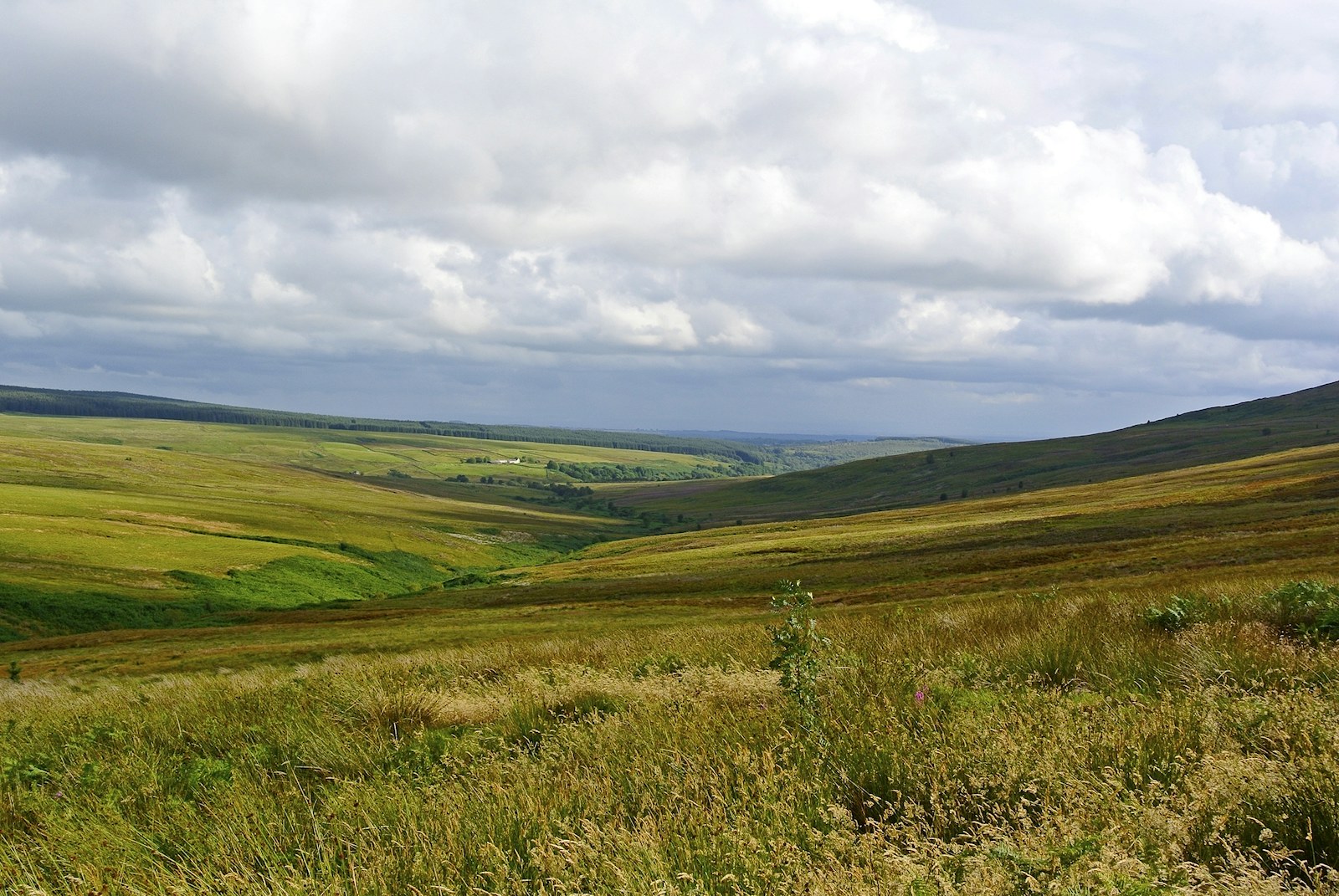
Is the project sustainable?
At the beginning of this project we were able to raise enough money to undertake some very intensive investigations into the viability of community ownership. Many people donated to our first crowdfunder to help with this (thank you). Our feasibility study found that community ownership can be financially viable, and it can run into a modest surplus right away. The main sources of revenue come from an existing commercial forestry plantation, rent from leased residential properties, agriculture and other tenancies. A summary of the Feasibility Study and Business Plan can be found on the Langholm Initiative Website.
By including a small area of land south of Langholm Moor and close to the town of Langholm we have given ourselves options to undertake some sustainable development. This includes the potential for appropriate small scale renewable energy (a single small turbine and a single small solar farm) and the development of a small eco-campsite. We will also investigate repurposing disused and dilapidated steadings for either small-scale housing or modern business units, both of which are badly needed in Langholm (there have only been 6 new houses in Langholm in the past 30 years).
The vast majority of the land will be used to create the Tarras Valley Nature Reserve. However, these developments in the long term will allow us to continue to promote positive climate action while simultaneously acting as a catalyst for rural community regeneration. Conservation and development are often seen as opposing forces because in many places, development has been carried out at the expense of the natural environment. If we continue exploiting our planet then it will no longer be able to sustain us. This is one of the main reasons why our project is so important: we will demonstrate how to deliver ecological restoration alongside the regeneration of a community.
“We want this project to inspire communities around the globe to strive for a brighter tomorrow”
What is the wider impact of the project?
One of the most exciting elements of this project (and one that has attracted widespread support), is the potential blueprint it could provide for other communities across the UK to improve their local environments in a post Covid-19 world. Long term, this project could also indirectly address other topical land use issues in the UK, including alternative uses for driven grouse moors, agriculture in a post-Brexit Britain and the balance of land ownership in Scotland.
Fundraising
After a careful joint valuation process we know the total cost of purchasing the land is just over £6m. We have applied to the Scottish Land Fund for £3m and hope to raise an additional £3.4m. The Langholm Initiative are continuing to investigate a number of funding options which we hope will help us towards this figure including the new South of Scotland Enterprise Agency.
We know this is a big ask, especially in these unprecedented and difficult times. However, if you’re able to donate to this crowdfunding campaign, you’ll not only be contributing to one of the most forward-thinking community plans of a generation, you will be providing hope for a better future for everyone.
We want this project to inspire communities around the globe to strive for a brighter tomorrow. If you can help us reach our goal, we’ll be another step closer.
“Rewilding embraces the role of people – and their cultural and economic connections to the land – working within a wider, healthy ecosystem. Rewilding Britain is really excited to lend our support to this pioneering community-led initiative and look forward to seeing the benefits it brings for people, nature and climate. We urge you to support it too!” ~ Rebecca Wrigley, chief executive, Rewilding Britain

Explore our Rewilding Manifesto
Learn more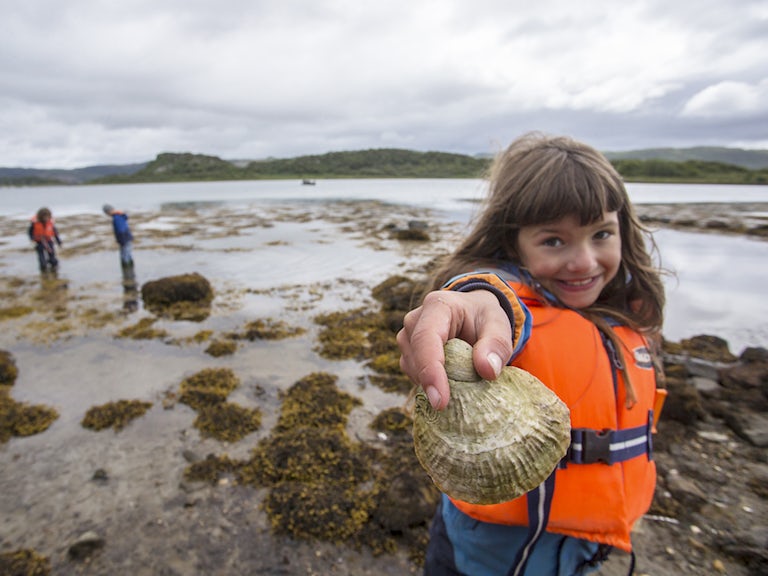
Our vision
We have big ambitions. Find out what we’ve set out to achieve through rewilding.
Our vision
